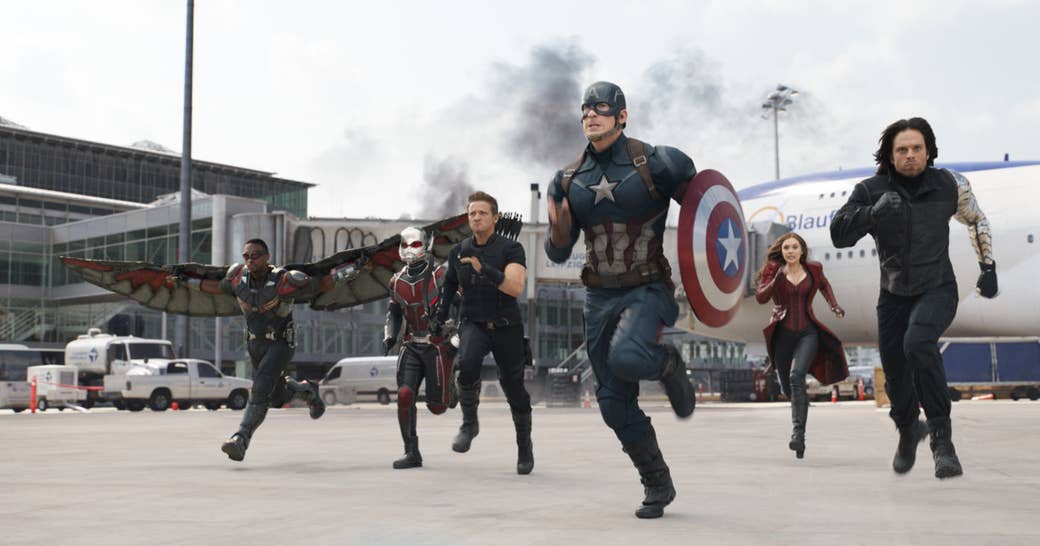
2016 is the year that superhero movies confront their collateral damage.
It’s an idea that’s already crept into Netflix’s expanding suite of Marvel series, all of them taking place in a battered New York still in recovery after the first Avengers film, where superhero worship exists alongside distrust over how Manhattan was made to serve as a battleground. That was also the point of the best scene in the grim jumble that was Batman v Superman: Dawn of Justice, which presented a street-level view of Superman and General Zod’s brawl through Metropolis from Man of Steel. One of those two godlike beings means well, but from there on the ground, they look the same — indifferent to the humans scurrying for their lives far below.
Captain America: Civil War features its own script-flipping depiction of innocents dying as a side effect of its characters’ actions. The movie, which was directed by Winter Soldier’s Anthony and Joe Russo, picks up in Lagos, where Steve Rogers (Chris Evans), Natasha Romanoff (Scarlett Johansson), Sam Wilson (Anthony Mackie), and a still-in-training Wanda Maximoff (Elizabeth Olsen) are trying to stop the theft of a biological weapon.
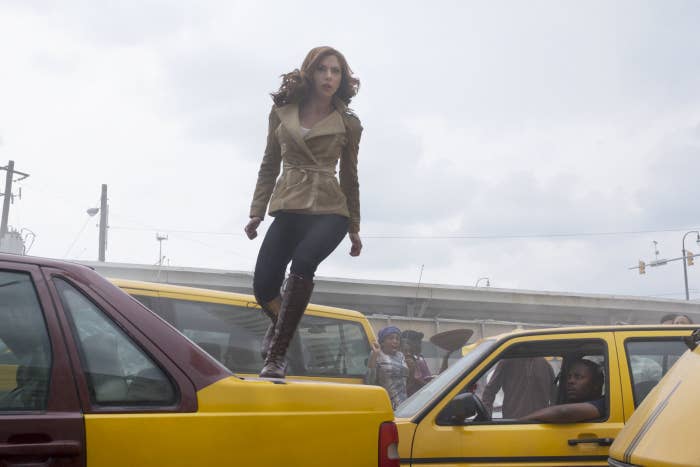
It’s all going smoothly, with chases through busy byways and some bruisingly satisfying Black Widow fight sequences, until it isn’t: A last-ditch bomb gets set off in the middle of a crowded marketplace. In her efforts to contain the explosion, Wanda ends up letting it take out a floor of a nearby building instead — and the record scratches, all the high-impact heroics ending in a flinch. The superheroes leave a scene in which bodies are being pulled out on stretchers, day saved at an unexpected and unwanted cost.
Among the dead and wounded are some visitors from Wakanda, which allows for the introduction of the royal T'Challa (Chadwick Boseman), also known as the Black Panther, but also ignites an international debate over whether the Avengers need to be regulated, whether those casualties were a fuck-up that could have been avoided, why they don’t care about international borders and sovereignty, and whether it was their business being there in Nigeria the first place. The Avengers are fresh off kinda-sorta being responsible for the creation of an artificial intelligence that tried to cause the extinction of mankind by dropping a chunk of the Sokovian capital from the sky, so they weren’t in the best standing to begin with. A reel of their recent exploits is played back to them as they cringe, all those de rigueur building-crushing big finales repositioned not as hard-won triumphs but as incidents of mass destruction.
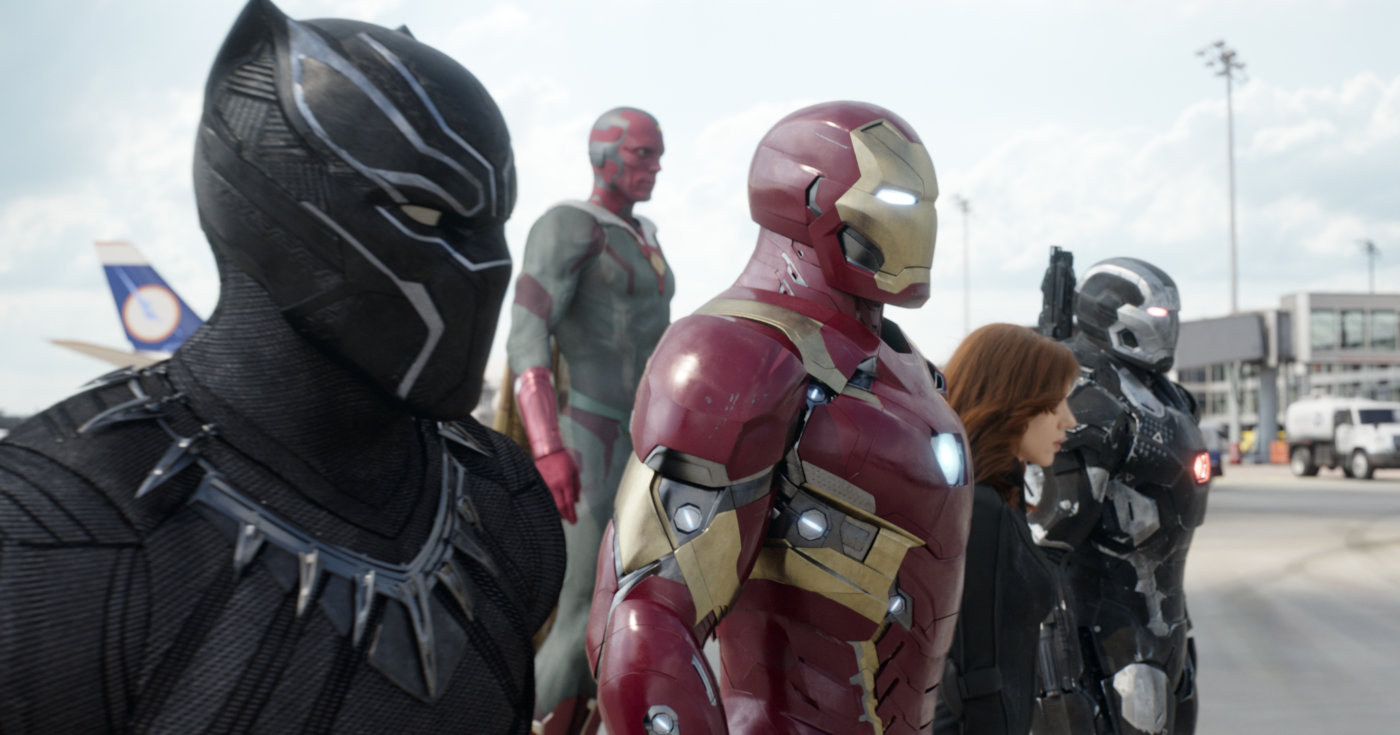
Sinister shadow organizations, malevolent masterminds, figures from the past intent on revenge, and power-hungry siblings — turns out there’s no foe as quietly formidable as accountability. Accountability isn’t a theme that screams “escapist fun,” but it is a nagging issue underlying almost every story about superheroes who’ve taken it upon themselves to fight crime and evil, and it's the source of the conflict in the improbably good Civil War. It’s easier to deal with the sacrifices that heroes might have to make to save the city and/or the world than to suggest that not everyone they leave behind is tearily grateful. But as the genre has expanded and matured and demanded to be taken seriously on screen, it’s a theme that becomes unavoidable, especially in a series that’s made a point of having consequences carry over after each fade to black and credits roll.
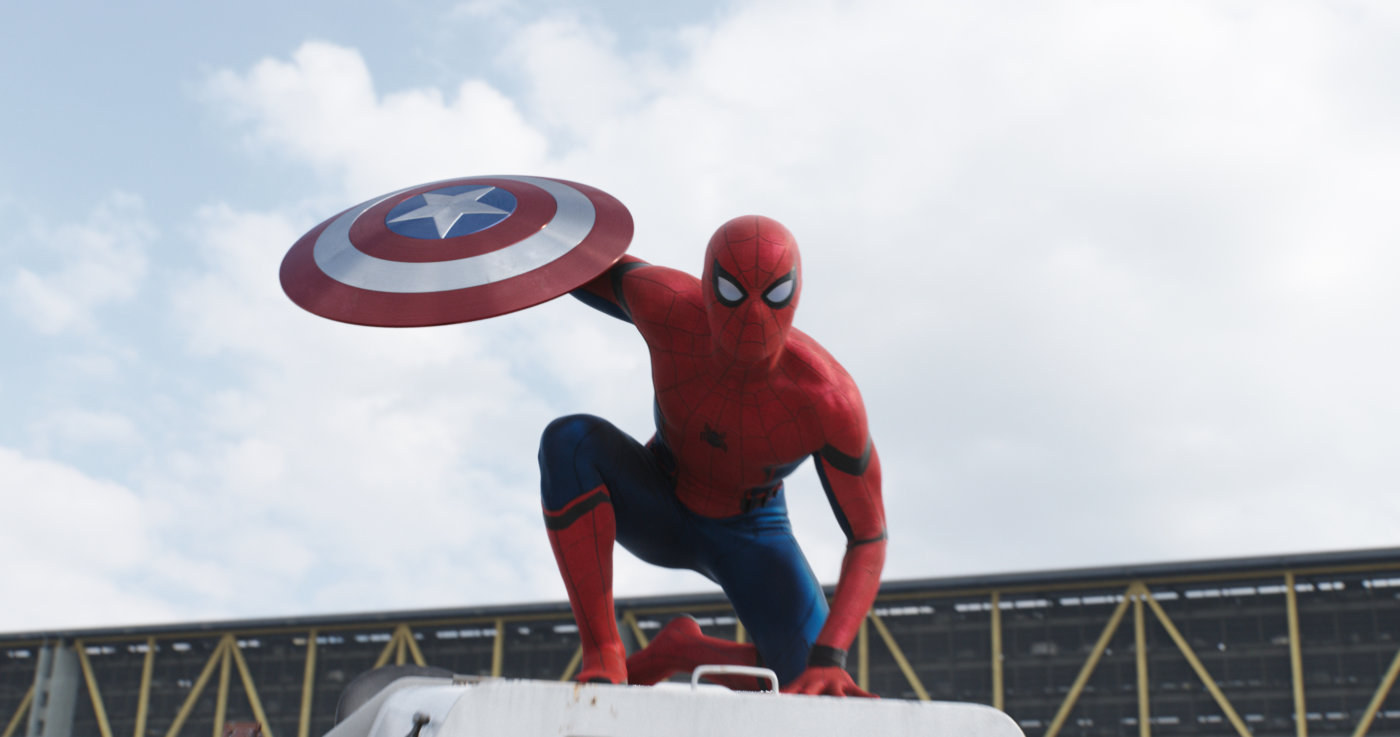
Spider-Man, who is reintroduced in Civil War as a squeaky-voiced teenage chatterbox played by Tom Holland, paraphrases a version of his “With great power comes great responsibility" motto. But believing that because you can help, you should doesn't make you immune from the question of who gave you the right to play savior, especially when you're a red, white, and blue–clad patriotic symbol who's decided to go global. And then there’s the point Vision (Paul Bettany) raises, which is that by demonstrating their power, the Avengers seem to be luring more antagonists out than ever before: “Our very strength incites challenge.”
Captain America: Civil War isn’t the best film in the Marvel Cinematic Universe, the world’s largest-scale, slowest-released television show masquerading as a series of films; I’d still give the edge to the unfettered, geeky joy of Guardians of the Galaxy and the tense paranoia of Winter Soldier (and who would have guessed that sad, square Steve Rogers would be at the center of two of the franchise’s most interesting movies?).
But Civil War is the MCU's most thematically ambitious installment, setting up the decision of whether the Avengers are going to allow themselves to be governed by a U.N. panel seriously and allowing the accrued history of the 12 previous films to weigh on it. On one side you’ve got Captain America, who’s got a post-Hydra libertarianish distrust of large organizations, but a greater faith in individuals, including poor brainwashed Bucky Barnes (Sebastian Stan), who’s once again made into a pawn of the unfolding plot. And on the other side you’ve got Iron Man (Robert Downey Jr.), whose life story has basically been that of a nose-thumbing capitalist longing for regulations to bump up against, forever going too far and then being confronted, as he is in the movie, with the ramifications of what he’s done.
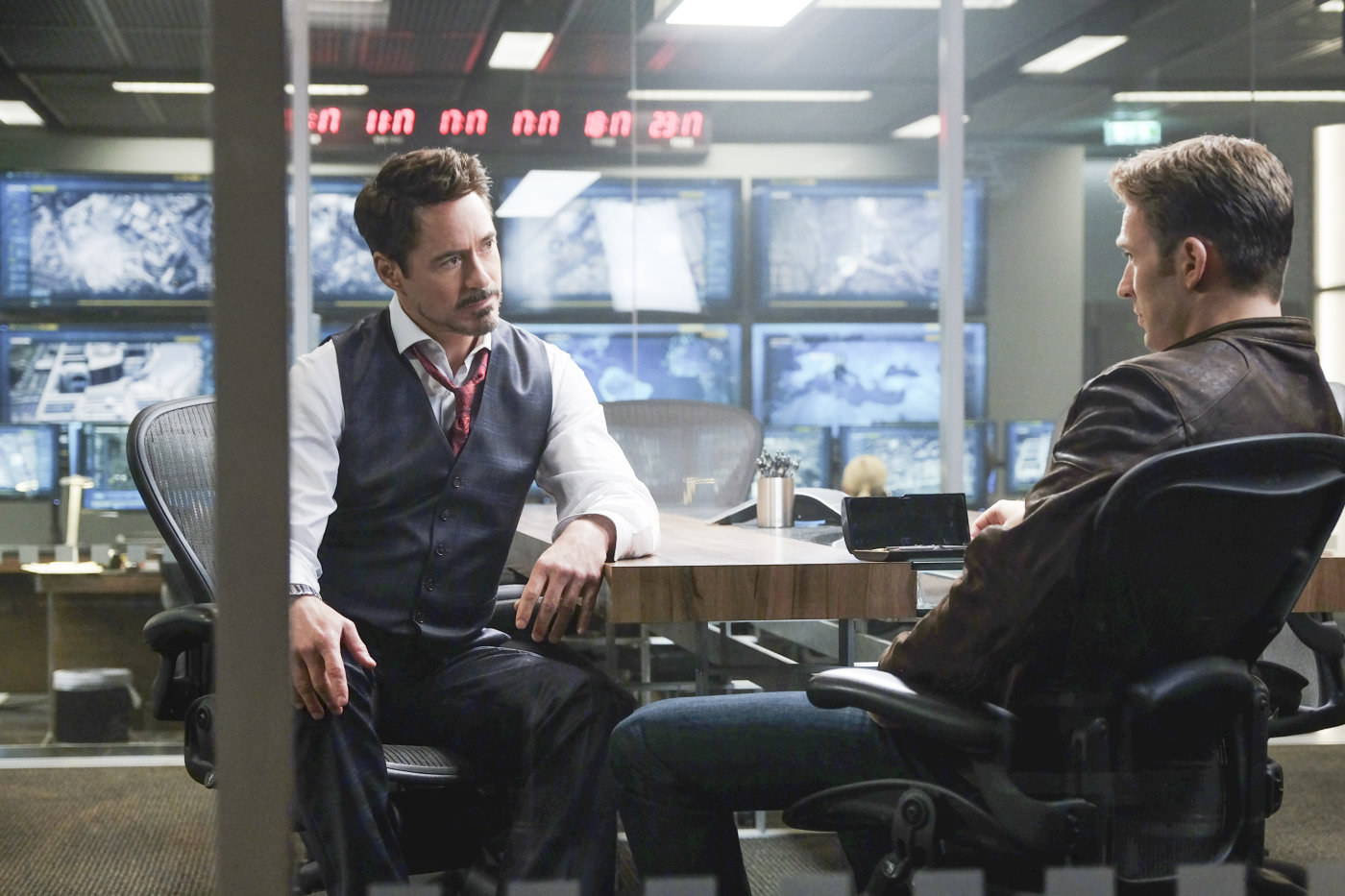
It’s a disagreement the movie treats with regretful inevitability, like a family dinner that’s about to dissolve into a fight because no one can keep the conversation from veering toward politics. There’s a villain in Civil War, an undramatic but highly motivated man named Zemo (Daniel Brühl), but all he really does is force confrontations that were brewing or bound to happen eventually. He prods at the right cracks, and the superhero supergroup ends up splitting right down the middle, with newcomers and recent additions like the aforementioned Black Panther (to whom Boseman brings gravitas and welcome frankness about looking out for his own), Ant-Man (Paul Rudd), and Spider-Man getting divvied up over the two teams.
It all escalates into a group showdown that’s gloriously fun (despite some of the characters feeling spliced in from a much more chipper movie) and genuinely sad, because if you’ve made it through eight years of Marvel features, you care about these quippy oddballs and their imperfect alliance. Batman v Superman: Dawn of Justice had its costumed duo try to punch each other to death over their ideological differences before declaring themselves inexplicable friends. Civil War is all about friends coming to blows over fundamental disagreements they don’t really settle (though the movie tilts sympathy to one side), with all sorts of personal resentments and loyalties and surfacing secrets mixed in. For once, fittingly, the fallout isn’t on a large scale, with a city to be half-demolished and civilians to be sheltered, but that doesn’t make it feel any less potent. It’s like watching a breakup in which both parties land punches, only most of them are literal.
